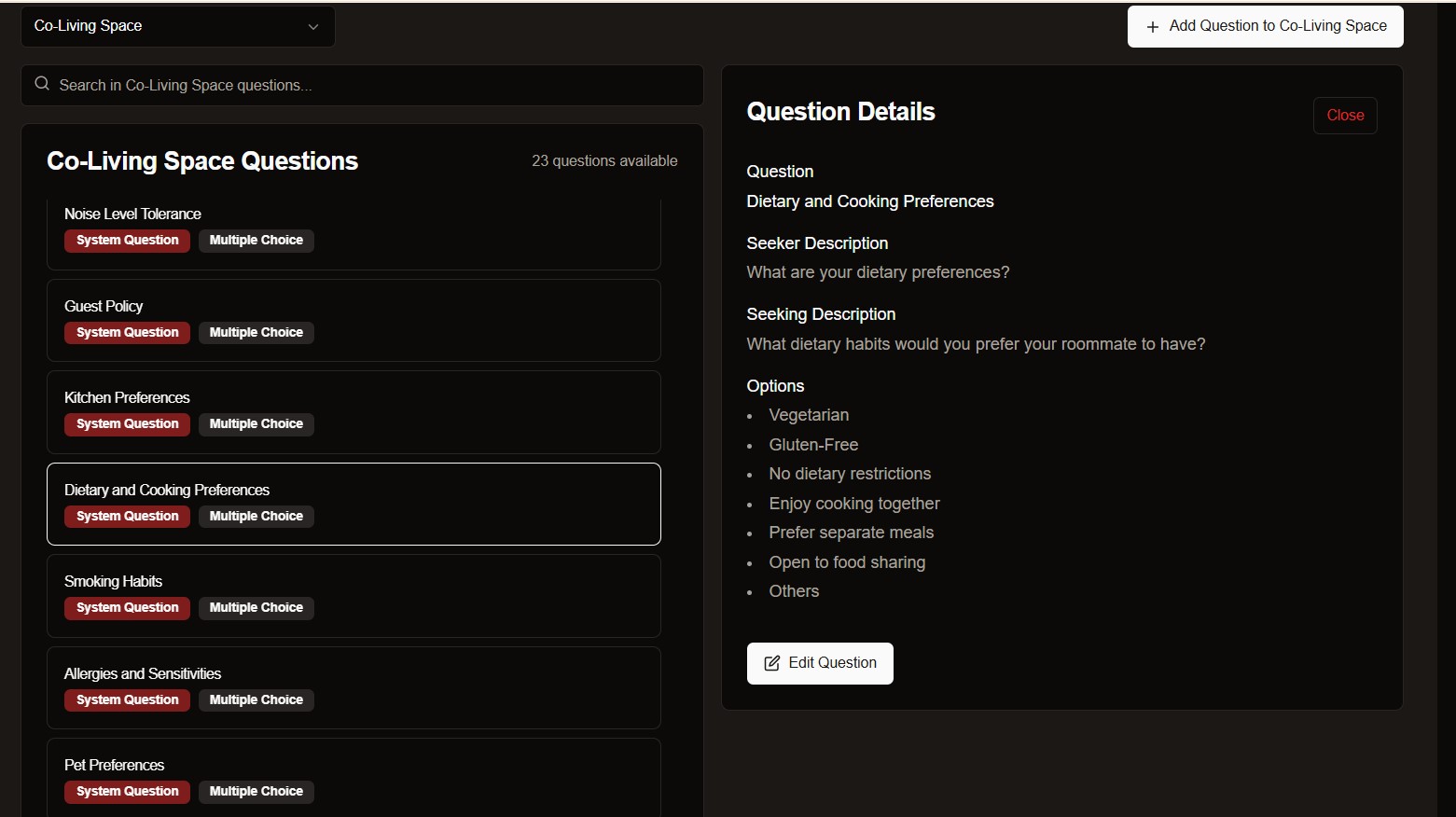Cultural Compatibility: The Secret Ingredient in Successful Roommate Matching

Jackson Brooker
Product Manager

When it comes to sharing a living space, most people focus on the basics—cleaning habits, noise levels, or sleeping schedules. But one crucial element is often overlooked: cultural compatibility. In our increasingly global and mobile world, individuals are more likely than ever to room with someone from a different background. This can either be a beautiful exchange—or a recipe for misunderstanding.
That’s where Easy Pairing stands out. Its roommate matching system doesn't stop at surface-level preferences. It digs deeper to evaluate shared values, communication norms, and lifestyle rhythms—often rooted in culture—to ensure truly compatible pairings.
Why Cultural Compatibility Matters in Co-Living
Culture isn’t just about language or country of origin. It influences everything from how people resolve conflict to how they define personal space. Even small details—like whether shoes are worn indoors or how guests are welcomed—can have a major impact on day-to-day harmony.
Without understanding or alignment, differences in these areas can create tension, especially in shared environments. But when cultural expectations are acknowledged and respected, co-living becomes more fluid, respectful, and even enriching.

Common Cultural Factors That Affect Roommate Dynamics
Here are a few cultural elements that can influence co-living success:
- Privacy vs. Openness: Some individuals come from cultures where communal living is the norm, while others value alone time and privacy.
- Conflict Resolution Styles: Some cultures promote direct confrontation; others avoid it. These differences can escalate small disagreements if not understood.
- Cleanliness and Organization: Perceptions of what’s “clean enough” vary widely.
- Noise Tolerance: Music, conversation volume, or TV usage can be interpreted differently based on cultural norms.
- Guest Etiquette: Norms around hosting friends or family vary significantly.
Ignoring these subtle but critical points can make even the most compatible-seeming roommates struggle.
How Easy Pairing Brings Cultural Compatibility Into Focus
Easy Pairing takes roommate matching beyond simple checklists. It uses customizable questionnaires and AI-driven insights to capture cultural nuances, including:
- Daily routines and lifestyle expectations
- Social habits and openness to cultural exchange
- Preferred communication and conflict resolution styles
- Personal boundaries and communal space usage
Instead of making assumptions based on origin or demographics, Easy Pairing asks the right questions to help individuals articulate their preferences and comfort zones clearly.

A More Respectful and Enriching Living Environment
When roommates are culturally compatible—or at least culturally aware—they tend to:
- Resolve issues faster
- Communicate more clearly and respectfully
- Share meals, traditions, and celebrations
- Create a deeper sense of home and inclusion
This is especially important in student housing, urban co-living spaces, and international exchange programs, where people from different parts of the world often come together for the first time.
Scaling Compatibility in Diverse Housing Communities
As co-living spaces scale to serve broader populations, manual matchmaking becomes unrealistic. Easy Pairing helps housing providers:
- Avoid generic, one-size-fits-all matches
- Promote intercultural awareness and harmony
- Reduce roommate disputes and turnover
- Gather data-driven insights to continually improve living experiences
By factoring in cultural compatibility alongside logistics like rent budgets and schedules, Easy Pairing creates well-rounded matches that truly work.

Conclusion
Successful co-living isn’t just about logistics—it’s about respect, understanding, and communication. By integrating cultural compatibility into its matching algorithm, Easy Pairing helps build living situations that feel less like transactions and more like shared communities.
Whether you're a student, a young professional, or a property manager, the secret to smoother roommate experiences might just lie in honoring cultural fit from the very start.
Ready to transform your group matching?
Join thousands of organizations using Easy Pairing to create better teams and connections.
Get Started Free